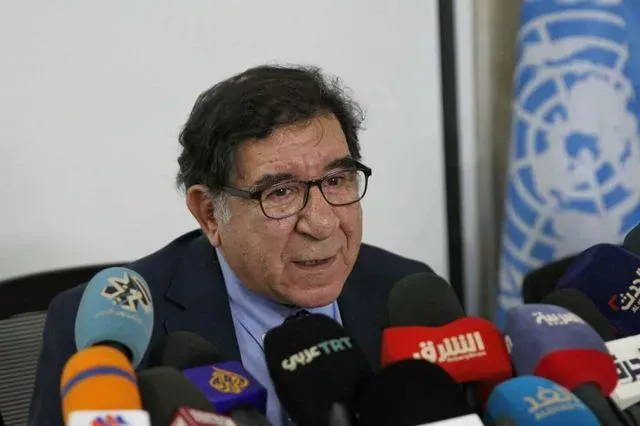Intense efforts to promote human rights in light of ongoing war

The capital, Khartoum, and a number of Sudanese states are the focus of vigorous efforts, both internally and externally, to promote human rights, in light of the continuing violations resulting from the war, which has now gone beyond its first year. The war has been characterized by militias targeting citizens in their homes and places of residence, while committing other serious violations.
As part of external efforts, the United Nations expert on human rights in Sudan, Radwan Noueiser, conducted an official visit to the country this month to assess the human rights situation in light of the ongoing war. This is his second visit since his appointment, and it comes at a critical time given the current circumstances and violations being committed.
In a meeting with Mr. Noueiser, the Vice-President of the Transitional Sovereignty Council, Lieutenant General Malik Aqar Air, stressed the importance of accountability and lack of impunity for crimes committed by the Rapid Support Militia against the Sudanese people. The meeting discussed issues of protection of civilians and displaced persons, facilitation of humanitarian relief operations, and the importance of cooperation with civil society organizations.
The UN expert welcomed the government's cooperation and the improvement of visa procedures for international humanitarian workers, which helps facilitate the movement of humanitarian convoys. During his talks, Noueisser also discussed the importance of engaging in the political avenues proposed to end the conflict.
During his visit, Nuwaisar met with a number of Sudanese officials, including the Minister of Social Development, Maulana Ahmed Adam Bakhit, who provided a detailed explanation of the damage caused by the RSF insurgency and its impact on human rights. The Children's Council also provided an explanation of the harm suffered by children.
The head of the National Human Rights Commission, Juma al-Wakil, affirmed Sudan's commitment to cooperate with international and regional human rights mechanisms, noting that the visit will contribute to the annual report of the High Commissioner for Human Rights on the human rights situation in Sudan.
Minister of Justice Dr. Muawiyah Othman Muhammad described the visit as important, stressing that it would enable the rapid support militias to document violations of international humanitarian law. The minister highlighted the government's cooperation with human rights mechanisms, explaining its efforts to protect civilians and human rights.
For his part, Attorney General Maulana Yasser Bashir al-Bukhari explained to the Human Rights Council in Geneva the work of the National Committee for the Investigation of War Crimes and Violations Committed by the Rapid Support Militia. Al-Bukhari stressed the importance of international cooperation in criminal investigations and provided a copy of the progress report on the committee's work.
Al-Bukhari reported that the number of registered criminal cases reached 12,470 and 346 arrest warrants were issued against leaders and members of the rebel forces, classifying these forces as a terrorist group. The minister also stressed the need for international cooperation to ensure justice and prosecute the perpetrators of these acts.
As part of internal efforts, the Technical Committee for the Implementation of UN Security Council Resolutions held a training workshop on human rights in the fight against terrorism, in the presence of representatives of diplomatic missions and international and regional organizations. During the workshop, the Vice-President of the Transitional Sovereignty Council, Lieutenant General Malik Agar Air, stressed the need for international cooperation to promote human rights in Sudan and around the world, stressing that human justice requires respect for human rights regardless of ideology and race.





